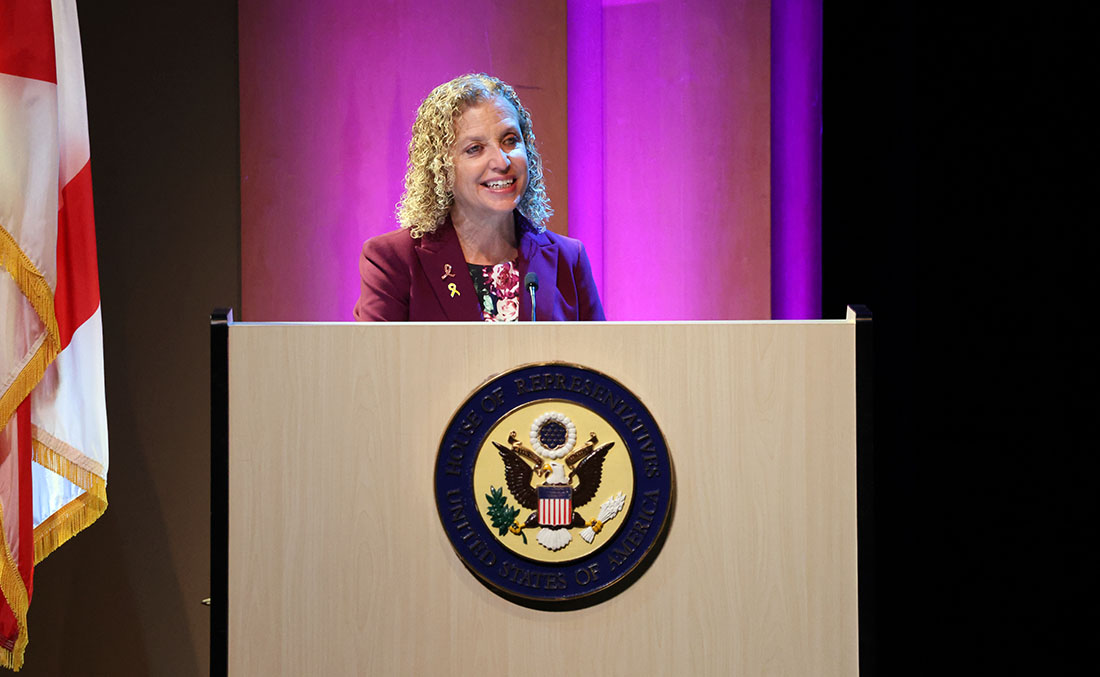By: Cynthia Corzo | September 10, 2025 | 10 min. read |
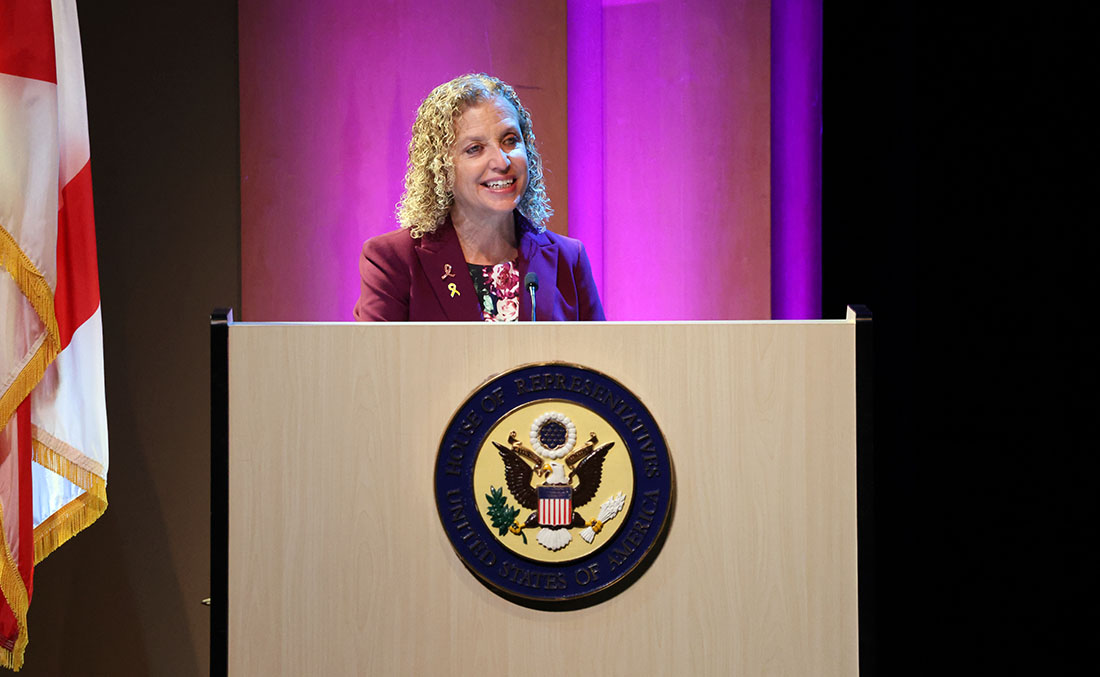
Summary
Physician-researchers from Sylvester Comprehensive Cancer Center joined U.S. Rep. Debbie Wasserman Schultz at the second Cancer Survivorship Summit.
Sylvester’s Dr. Carmen Calfa advocated for genetic testing to identify cancer risks early.
Dr. Frank Penedo said support systems must let cancer survivors know they will be there for patients on their cancer journeys.
U.S. Rep. Debbie Wasserman Schultz’s second Cancer Survivorship Summit set out to shine a light on developments in survivorship care, genetic testing, policy and local and national resources. Physician-researchers from Sylvester Comprehensive Cancer Center, part of the University of Miami Miller School of Medicine, were in attendance to share through panel discussions.
The daylong event at Nova Southeastern University in Davie, Fla., addressed life after diagnosis and giving patients, families and caregivers a clearer path forward while reminding them they are not alone.
“Survivorship is not a solo journey. It takes a network,” said Wasserman Schultz, a breast cancer survivor who was diagnosed 17 years ago. “When you hear those three words, ‘You have cancer,’ you forget where you’re going or what you’re supposed to do. Everything becomes harder.”
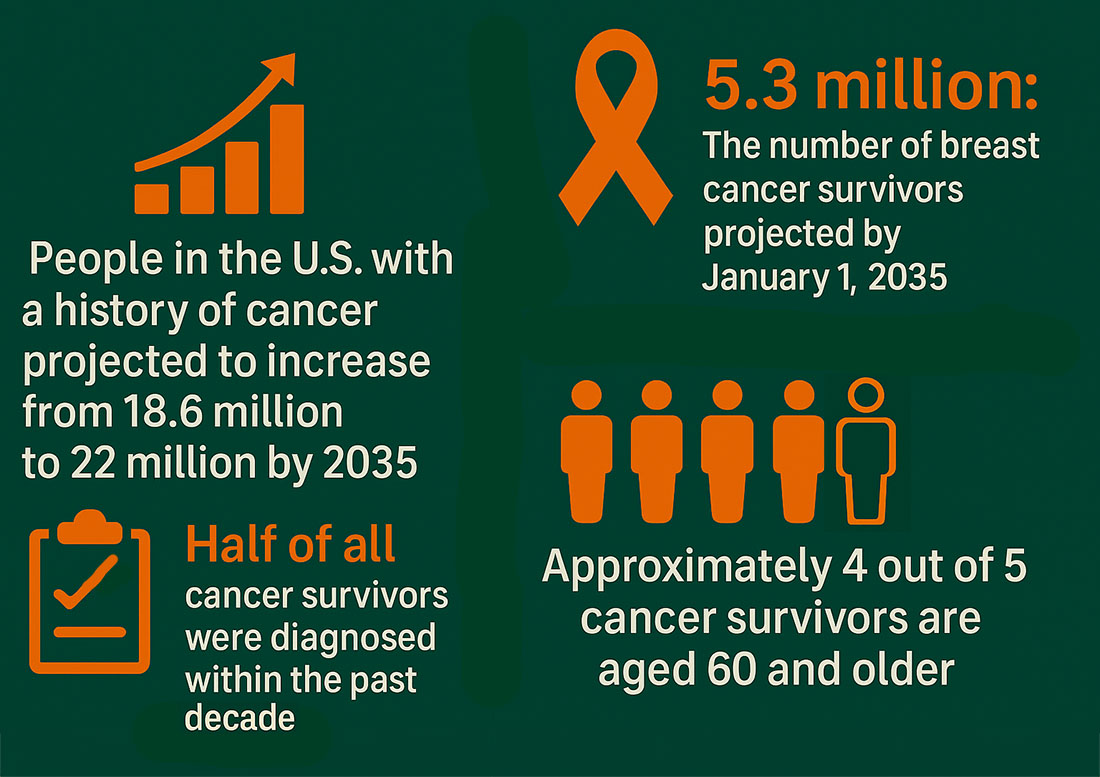
In November 2023, Lainie Jones, a summit attendee, learned she had glioblastoma, an aggressive and potentially deadly type of brain tumor. While under that treatment, she was diagnosed with stage 1 lung cancer. The lung cancer was eradicated with five rounds of radiation.
Since she was 18 months old, the 41-year-old has had seven different types of cancer diagnosed—adrenal, breast, thyroid, brain, melanoma, sarcoma and lung—due to a rare genetic condition called Li-Fraumeni syndrome. She’s stayed ahead of the disease through regular screenings and early detection.
“I’m a testament to resilience, hope and early detection,” Jones said. “Early detection became my mantra and key to survivorship.”
Genetic Insights Offer Path to Earlier Diagnosis and Improved Outcomes
A leading topic at the 2025 summit was the growing importance of genetic testing that reveal a person’s predisposition to cancer. Genetic testing can spur early detection, improve screening and identify the best treatment options.
Carmen Calfa, M.D., a breast cancer medical oncologist, medical co-director of Sylvester’s Cancer Survivorship and Supportive Care program and associate professor of medicine at the Miller School, and Sue Friedman, executive director and founder of Facing Our Risk of Cancer Empowered (FORCE), dispelled myths about cancer genetic testing at the summit.
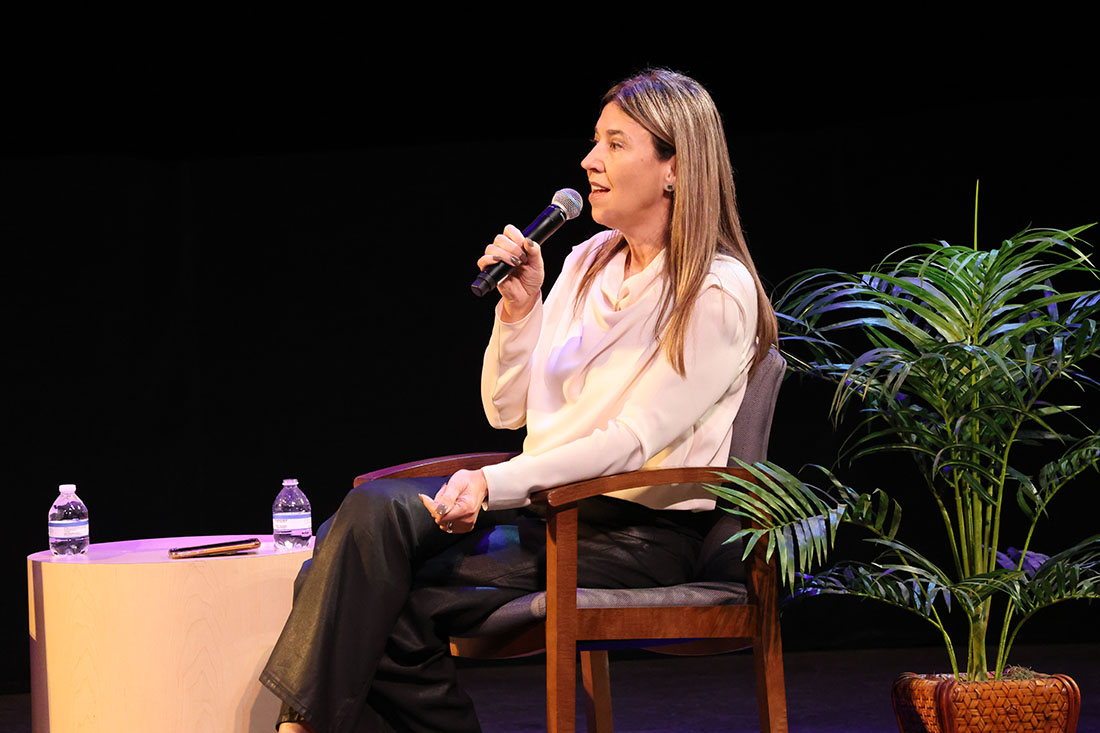 Dr. Carmen Calfa stressed genetic screening can identify predispositions to cancer and impact care.
Dr. Carmen Calfa stressed genetic screening can identify predispositions to cancer and impact care.
Dr. Calfa pointed out that if every cancer survivor who had a solid tumor were tested, one in eight would have a genetic mutation indicating a predisposition to develop multiple cancers of different types. That changes the course of treatment as well as the recommended screening and surveillance for other cancers. It also provides essential information for the immediate family. Ultimately, through prevention and risk-reduction strategies, a large population can be spared from cancers.
“If you have a mutation that increases the risk of multiple cancers, you have to take steps for the appropriate testing,” said Dr. Calfa, physician leader of Sylvester’s Genetic Predisposition Syndrome Program. “Depending on the affected gene, you cannot wait until 40 to start mammography. You start breast images at 25 or you’re 15 years late.”
Friedman received a diagnosis of breast cancer in 1996, while in her 30s. In 1997, she tested positive for a BRCA2 mutation. She launched FORCE in 1999 in order to inform and advocate for people with hereditary cancers. A strong proponent of genetic testing, Friedman said that “it can save lives as much as generate new medications.”
Bill Zito, president and general manager of the Florida Panthers, who has supported his wife, Julie, through her own cancer battle, delivered this year’s keynote address. He has felt the disease’s toll personally, losing his sister, mother and mother-in-law. Today, Julie is a breast cancer survivor.
“It’s important that we are proactive,” said Zito. “We don’t do enough, community-wise. Patients need to have resources–food, a ride to the hospital. Caregiving includes simple tasks.”
The Physical, Emotional and Social Needs of Cancer Survivors
On one summit panel, doctors discussed the needs of patients surviving cancer. Survivorship, they said, begins at the moment the cancer is diagnosed. Patient-centric approaches focus on physical, emotional and overall well-being, as well as lifestyle behaviors like nutrition and physical activity.
“We have to convey that we’re joining them on that journey,” said Frank J. Penedo, Ph.D., director of Sylvester Cancer Survivorship and Supportive Care and associate director for population sciences at Sylvester. “While the time of diagnosis is a shock to the system, we have to empower the patient from the onset and provide them early on with services that can assess physical, emotional and practical needs, and connect them with services at Sylvester such as our Survivorship Wellness Clinics, as well as community resources.”
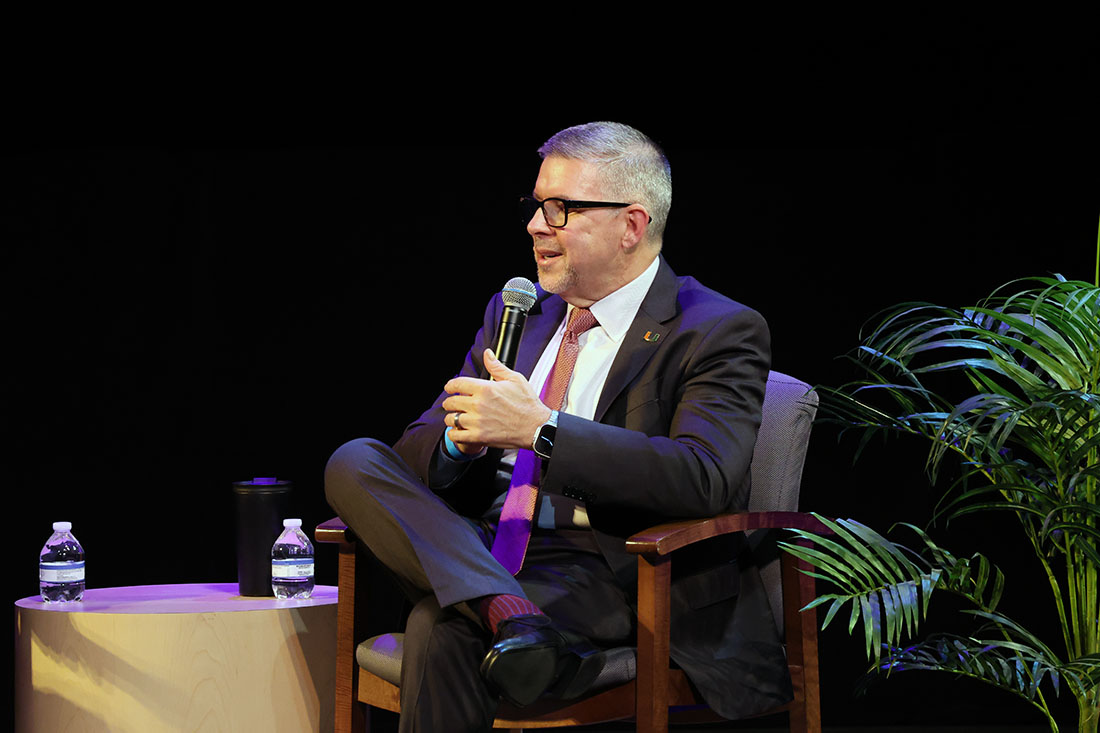 Dr. Frank Penedo said cancer survivorship starts at the time of diagnosis.
Dr. Frank Penedo said cancer survivorship starts at the time of diagnosis.
Another panel discussed non-medical drivers of health and their impact on survivors, including financial toxicity, food insecurity and transportation.
“We’re far from where we have to be,” said Alejandra Perez, M.D., an associate professor of medical oncology at the Miller School and director of the Breast Cancer Program at Sylvester Comprehensive Cancer Center Plantation. “When your mortality depends on your zip code, we have a problem.”
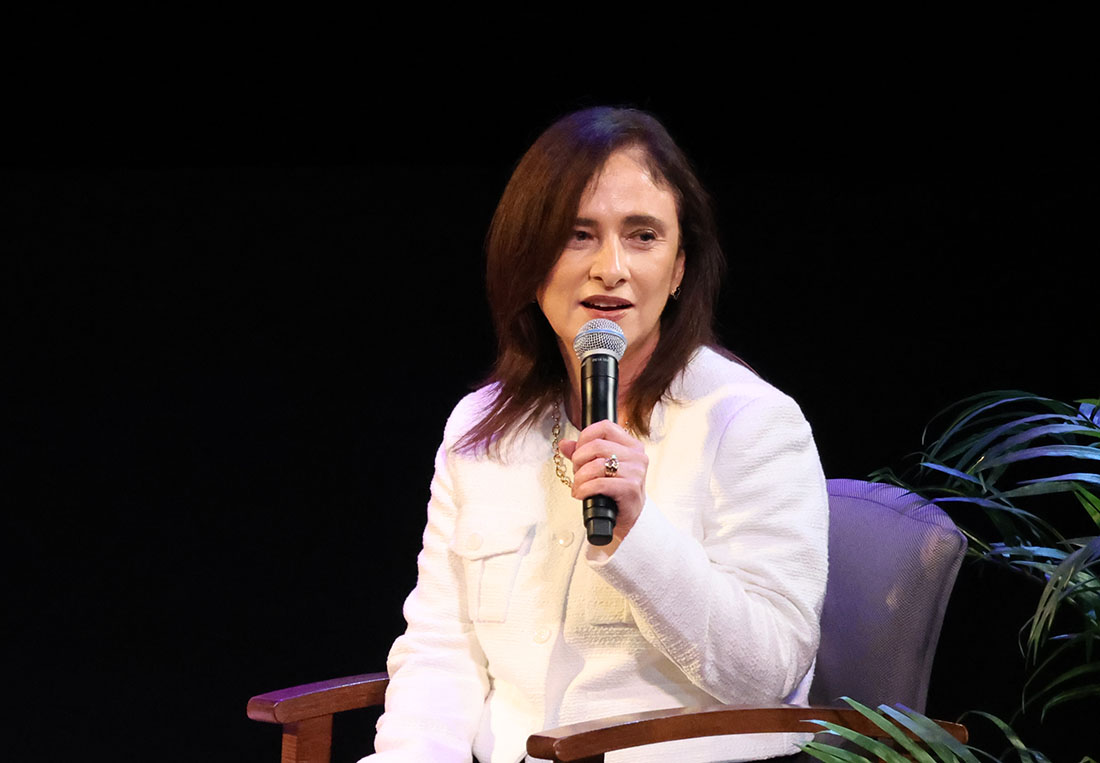 “When your mortality depends on your zip code,” said Dr. Alejandra Perez, “we have a problem.”
“When your mortality depends on your zip code,” said Dr. Alejandra Perez, “we have a problem.”
Initiatives, Dr. Perez noted, involve individual patient-doctor relationships, institutions and the community.
“We need to screen all patients for social determinants of health, including housing, food insecurities, transportation, child care and others. Programs and policy guidelines involving community leaders, navigators and social workers are key,” Dr. Perez said. “We have to incorporate those at every level.”
Resources for Cancer Survivors
The Cancer Survivorship Summit featured a resource fair with a Sylvester team and provided free cancer screenings at Sylvester’s Game Changer™ and Firefighter Cancer Initiative vans.
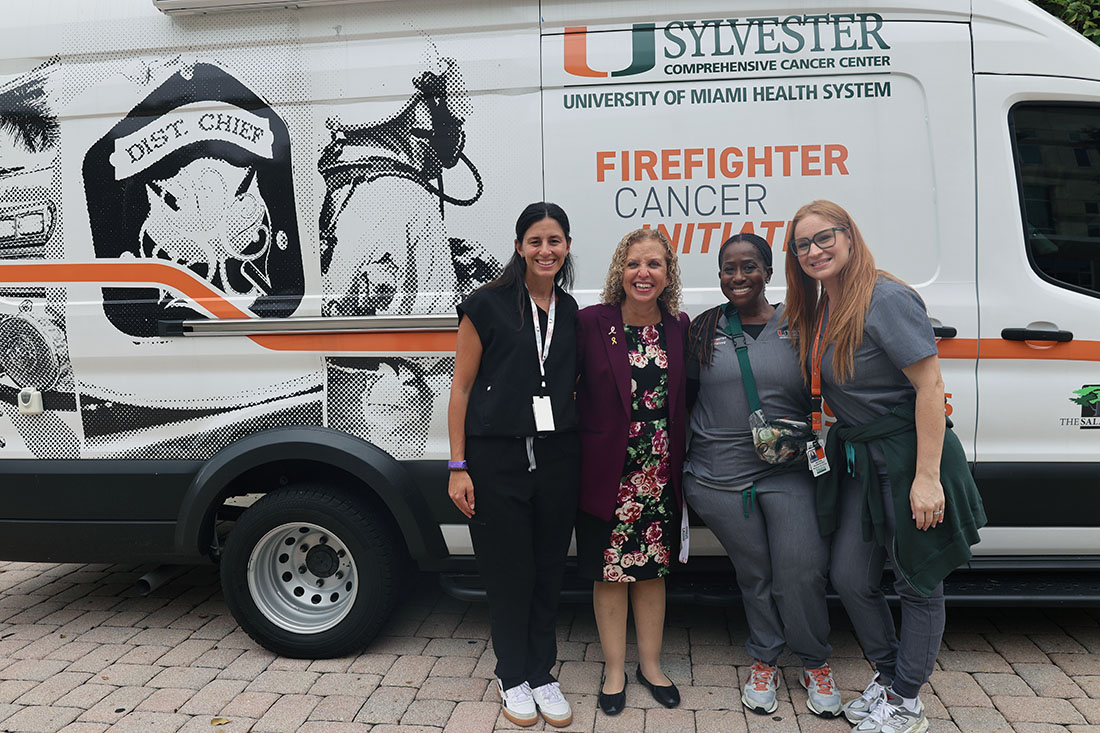 The Sylvester Firefighter Cancer Initiative works to reduce the cancer risks firefighters face in the line of duty.
The Sylvester Firefighter Cancer Initiative works to reduce the cancer risks firefighters face in the line of duty.
Wasserman Schultz continues to play a significant role in the bipartisan Comprehensive Cancer Survivorship Act that would address gaps in survivorship care, develop standards to improve care quality and meet the navigation needs of cancer survivors and their families. Drs. Penedo and Calfa endorsed the act and joined the congresswoman at the House of Representatives press conference when the legislation was initially announced.
“In order to prepare to achieve longer survival and eradicate cancer, we have to focus on building a strong foundation for patients. That includes collaborative endeavors that are designed to serve,” said Wasserman Schultz. “Cancer is relentless, and we have to be just as relentless in our fight.”
Tags: brain cancer, breast cancer, cancer research, cancer survivorship, Cancer Survivorship Program, Comprehensive Cancer Survivorship Act, Dr. Alejandra Perez, Dr. Frank Penedo, Game Changer, lung cancer, melanoma, sarcoma, Sylvester Comprehensive Cancer Center, Sylvester Firefighter Cancer Initiative

